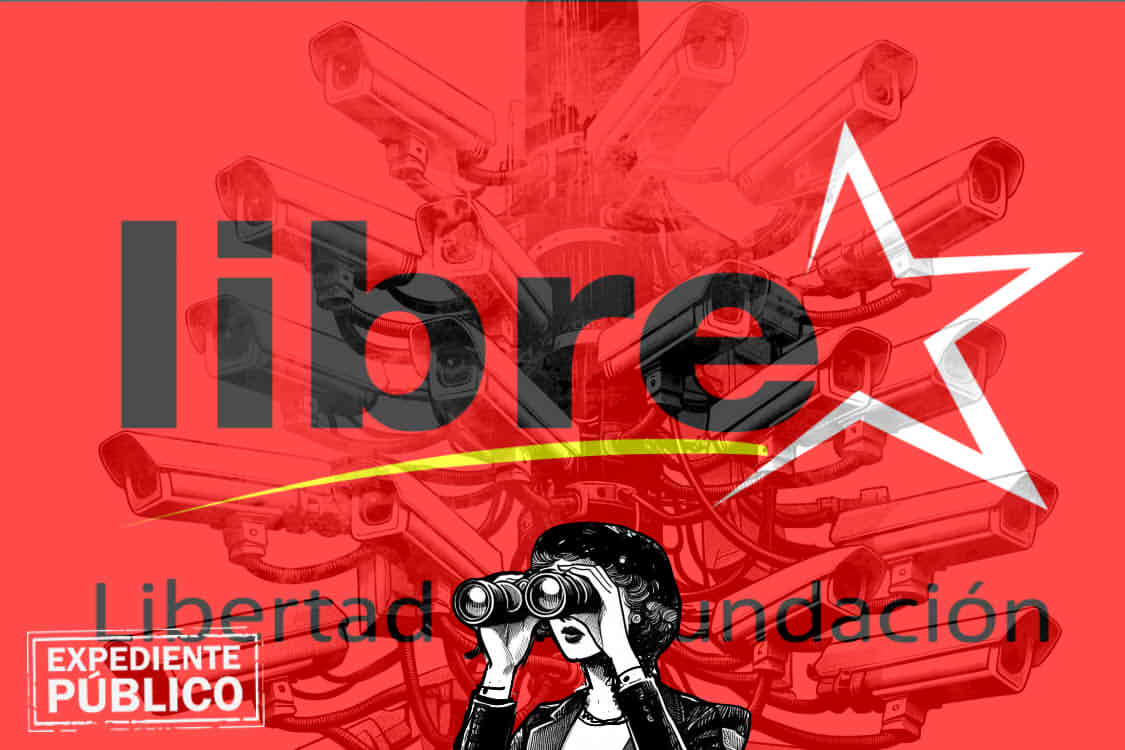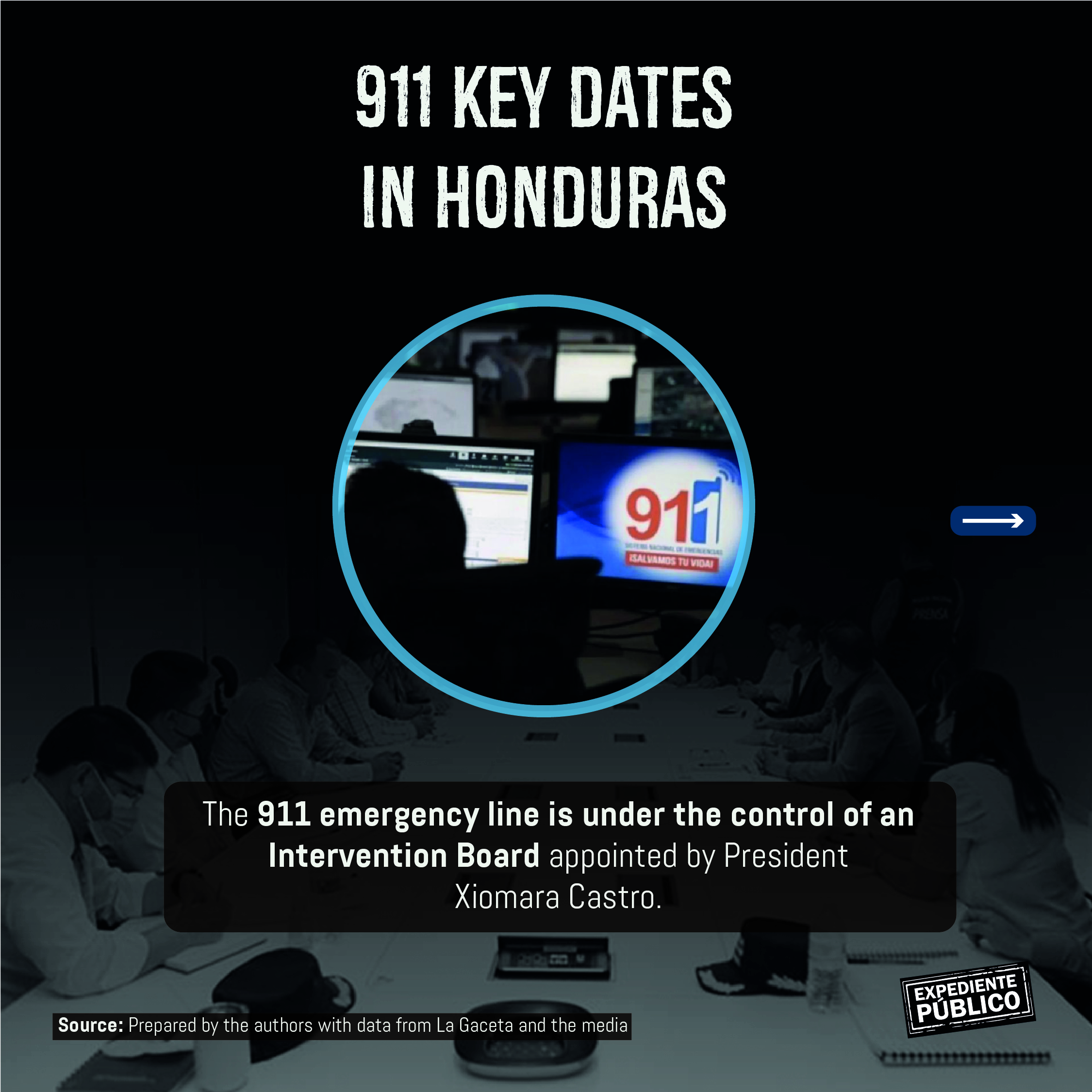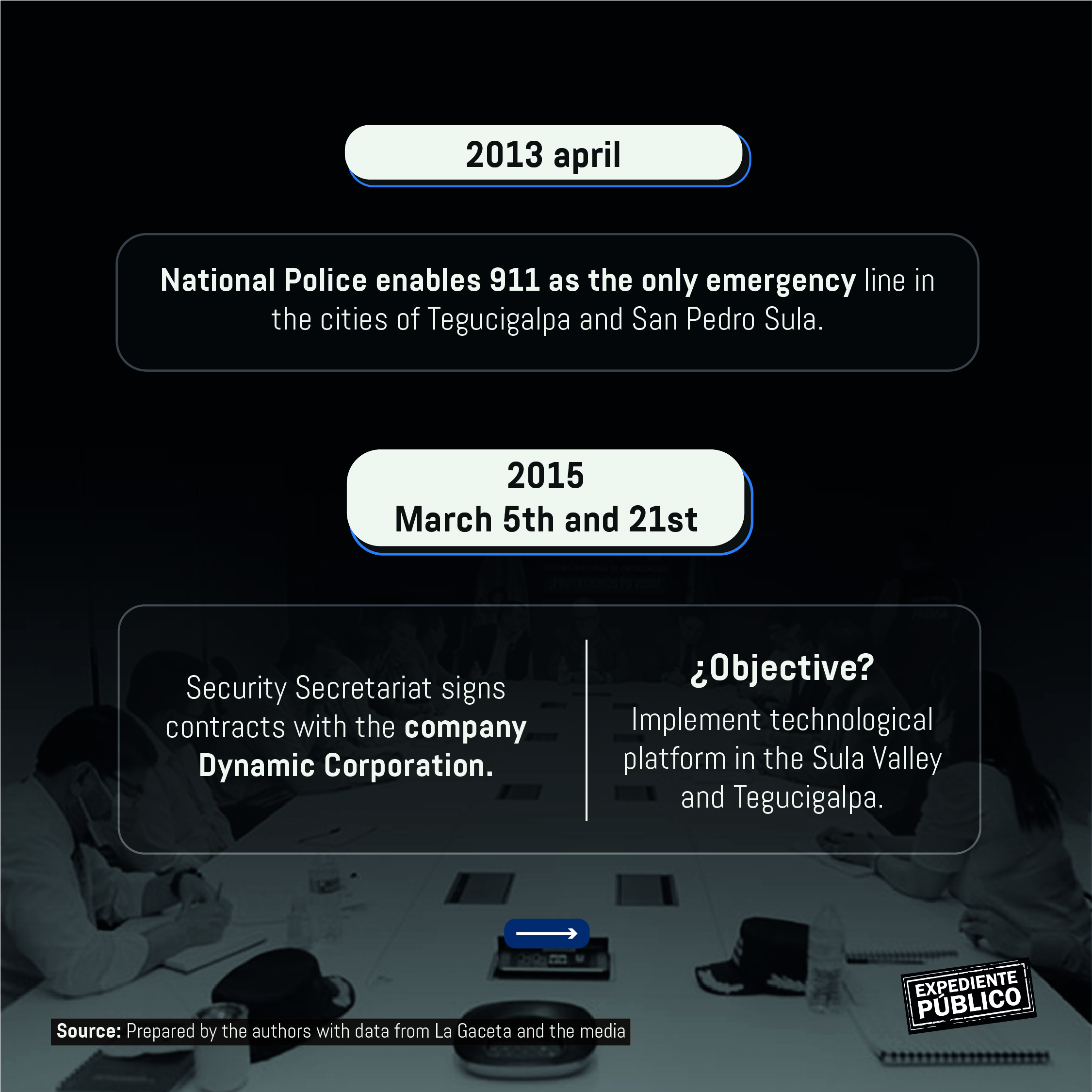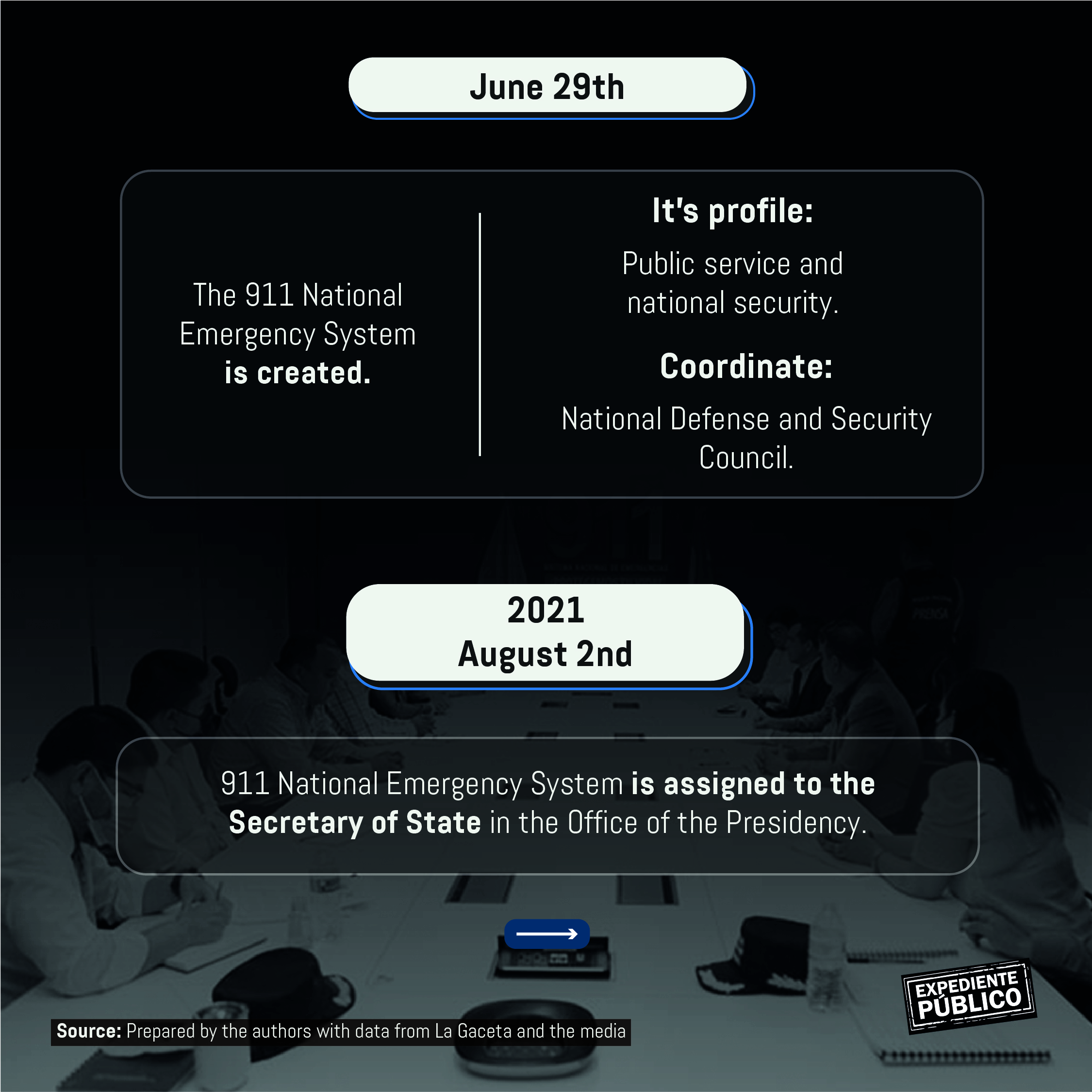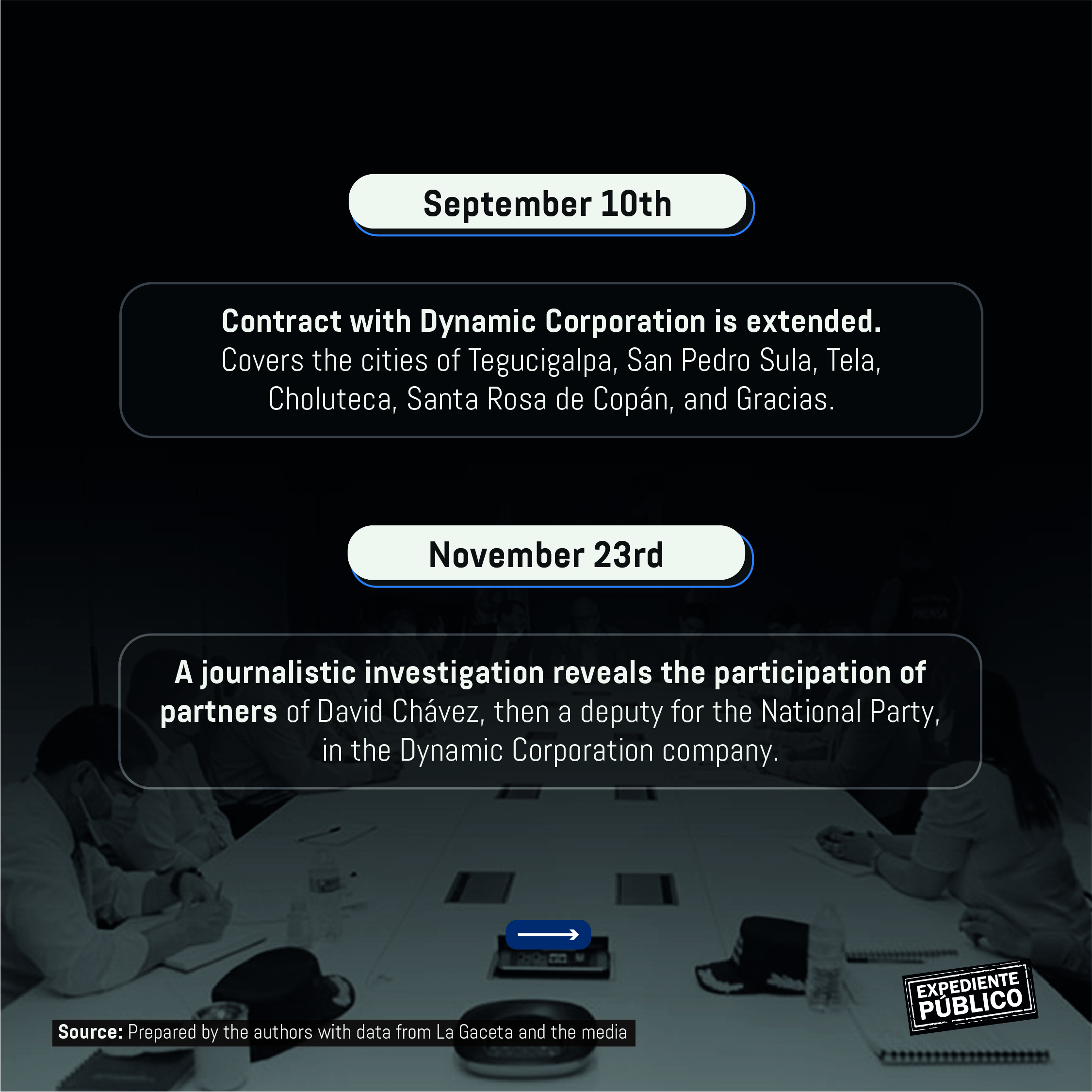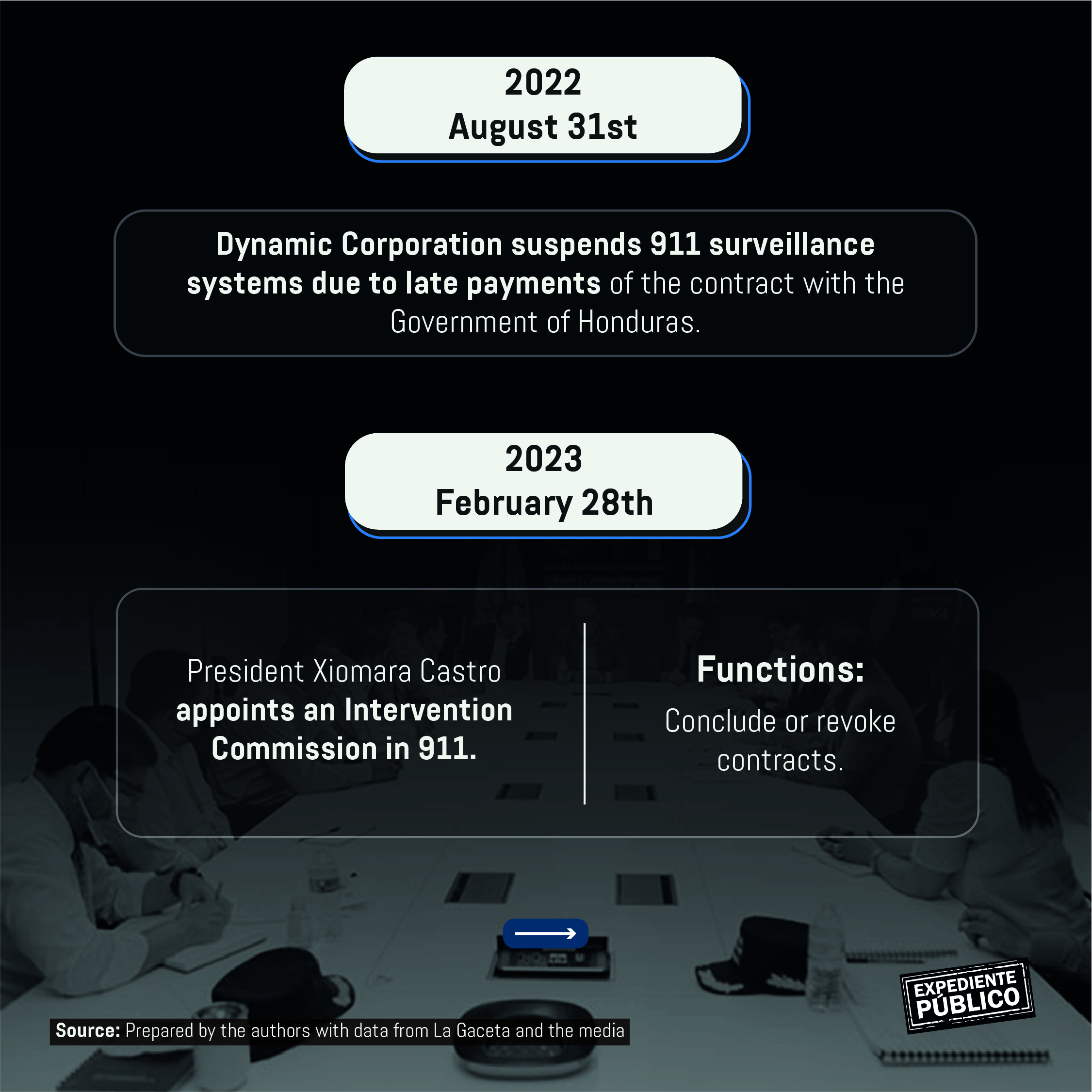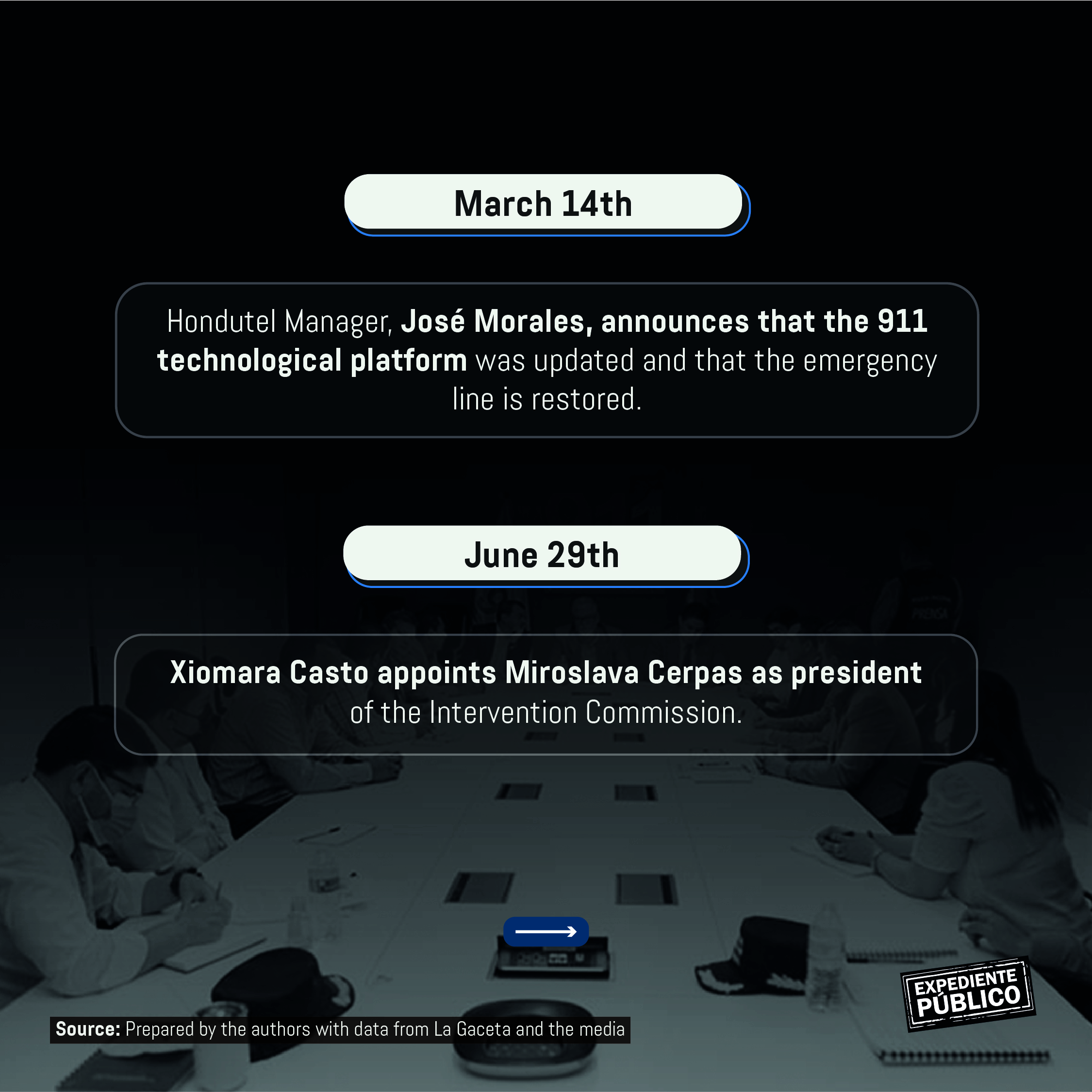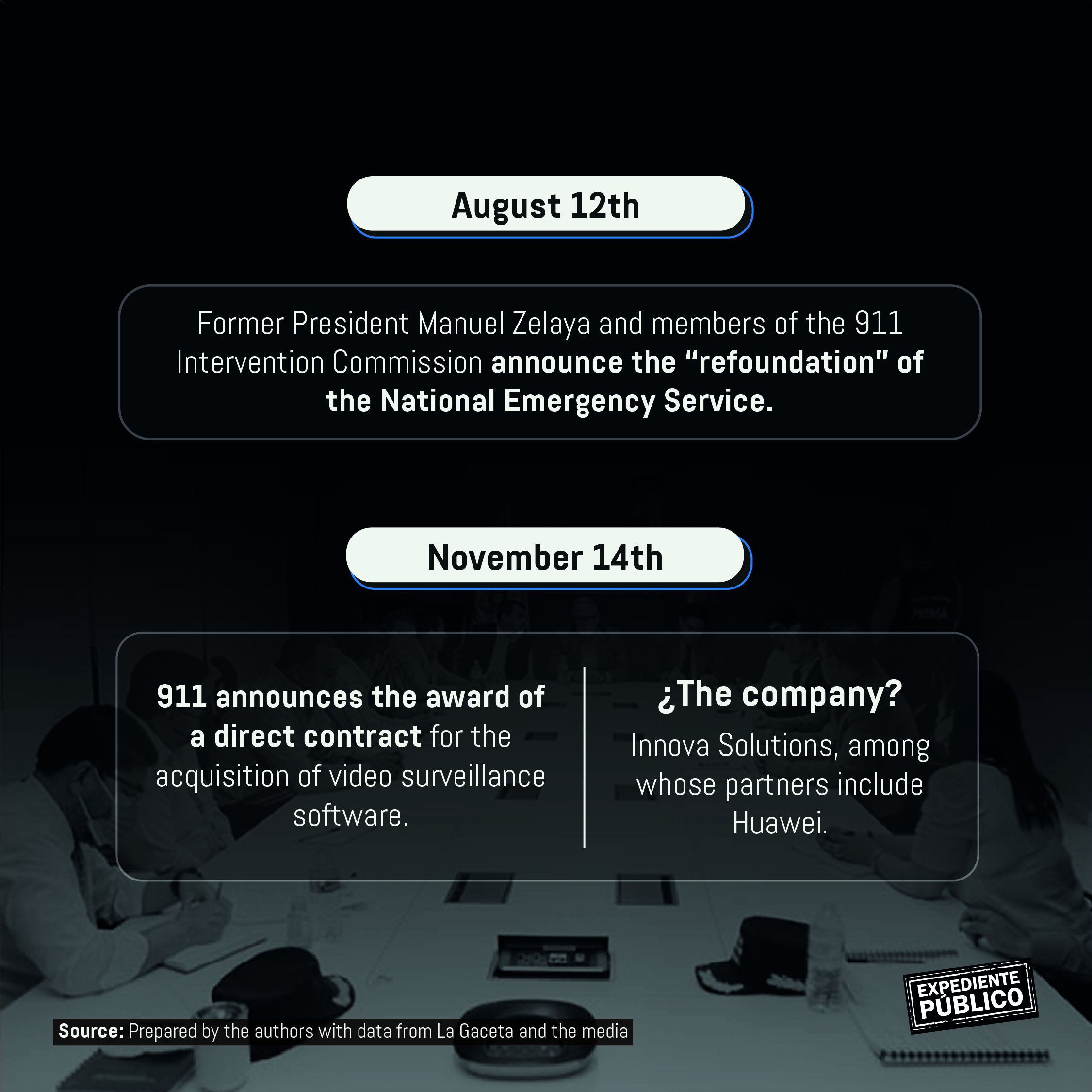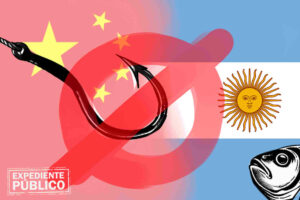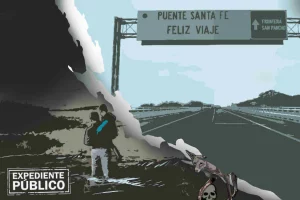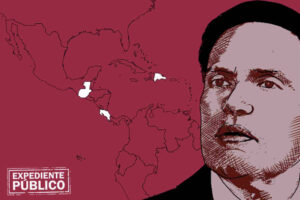*Although it is a critical tool for public safety, decisions in the 911 National Emergency System are political and put its ability to respond at risk.
Expediente Público
The actions of the Intervention Commission of the 911 National Emergency System have focused on firing staff to put members of collectives of the Libertad y Refundación (Libre) party in their place, according to complaints from former employees.
February 28, 2024, marks one year since the Intervention Commission appointed by President Xiomara Castro took control of the system.
Created on June 29, 2015, during the government of President Juan Orlando Hernández, the National Emergency System operates, in addition to the 911 telephone line, a video surveillance network of more than 4,000 cameras, according to the National Police.
The system integrates around twenty public institutions to deal with traffic accidents, natural disasters, and damage to health and life, among other things.
Hence, 911 is of interest to criminal structures that seek to have people within the institution to control certain movements of authorities and rival gangs, according to sources consulted by Expediente Público.
Subscribe to Expediente Público’s newsletter and receive more information
“The information I have (is) that ‘Don H’ and ‘El Rojo’ tried to take over the 911 contract, but they did not succeed,” journalist and researcher Óscar Estrada, author of the book Tierra de narcos, shared with Expediente Público.
Don H and El Rojo are Honduran drug traffickers Héctor Fernández (sentenced to life in prison in the United States) and Víctor Díaz, who would be one of the witnesses in the trial against former President Juan Orlando Hernández.
“The danger that exists now is this politicization that has been taking place from security structures” such as 911, he said.
Political control with citizen data
One of the risks has to do with the control of the population, of activists or uncomfortable people, which has been a concern for movements that defend social protest since the Hernández government installed the security system and took control of it.
Ecuadorian journalist Paul Mena recalled to Expediente Público what happened during Rafael Correa’s government with the Integrated Security Service.
“He politicized the intelligence service, creating the National Intelligence Secretariat, SNAI, which had access to the ECU 911 cameras to monitor opposition politicians, environmentalists, and journalists,” he summarized.
The last thing that was known is that “ECU 911 can track a person’s mobility through their cell phone number and that a big drug trafficker, Leandro Norero, had access to that system to follow the people he wanted to attack.”
ECU-911 was developed, in large part, by two Chinese companies: the state-owned C.E.I.E.C. and Huawei.
Surveillance due to insecurity and violence
According to the Observatory of Violence of the National Autonomous University of Honduras (UNAH), the homicide rate was 38.2 per hundred thousand inhabitants in 2022, four times higher than the world standard of 8.8.
Domestic and intrafamily violence, also in 2022, accounted for 76.6% of the total complaints for crimes against bodily integrity in the Police Investigation Directorate (DPI) and, on average, there were five deaths per day in road accidents.
911 is “a fundamental tool for public safety,” retired Commissioner Leandro Osorio told Expediente Público, who questioned the appointment of a person “without knowledge, without expertise in security matters” as president of the Intervention Commission.
Lawyer Miroslava Cerpas was appointed to this position by agreement published in La Gaceta on July 20, 2023, after her predecessor and fellow lawyer, Roberto Reina, surprisingly left office.
911 reactivated
One of the tasks of the Intervention Commission was to declare null and void the 911 contract with the company Dynamic Corporation, which on August 31, 2022, suspended video surveillance services due to lack of payment.
The service was partially restored on March 14, 2023 after the Honduran Telecommunications Company (Hondutel) took over the technology platform.
“I don’t know, Miroslava (Cerpas), really what capacity she has to be able to take over a space as important as security, such as 911,” criticized Estrada.
Cerpas, a former student of the Escuela Normal Mixta Pedro Nufio Gamero, was one of the founders of the Normalista Revolutionary Student Front, with which she took to the streets to demonstrate against the 2009 coup d’état and “for the refoundation of the State.”
Before moving to 911, Cerpas was deputy director of the Civil Service Directorate, where she had clashes with the then-director, Juan Leonardo Bú, whom she accused of being from the National Party and of firing people from Libre, for which both were suspended and then removed from their respective positions.
Layoffs and internal strife
The layoffs at 911 began as soon as the Intervention Commission began its functions, but Roberto Reina made them more consensual and only separated the administrative employees, Carlos Ochoa, spokesman for the former employees, told Expediente Público.
By not making disproportionate layoffs, Reina came into conflict with the other two members of the Intervention Commission, Gosset Moncada and Gerardo Hernández, who “spoke against him” to former President Manuel Zelaya, President Castro’s husband, to remove him from office.
They wanted to “cleanse” 911 of National Party employees and leave only people from Libre, added Ochoa, who estimates that layoffs could exceed 3,500 nationwide.
Despite her career as an award-winning human rights defender, she has been accused of abuse of power by current and former 911 employees, and her management has been marked by protests over late salary payments and unjustified dismissals without benefits.
Expediente Público requested an interview with Cerpas, but she delegated it to the head of Public Relations of 911, Francia Reyes.
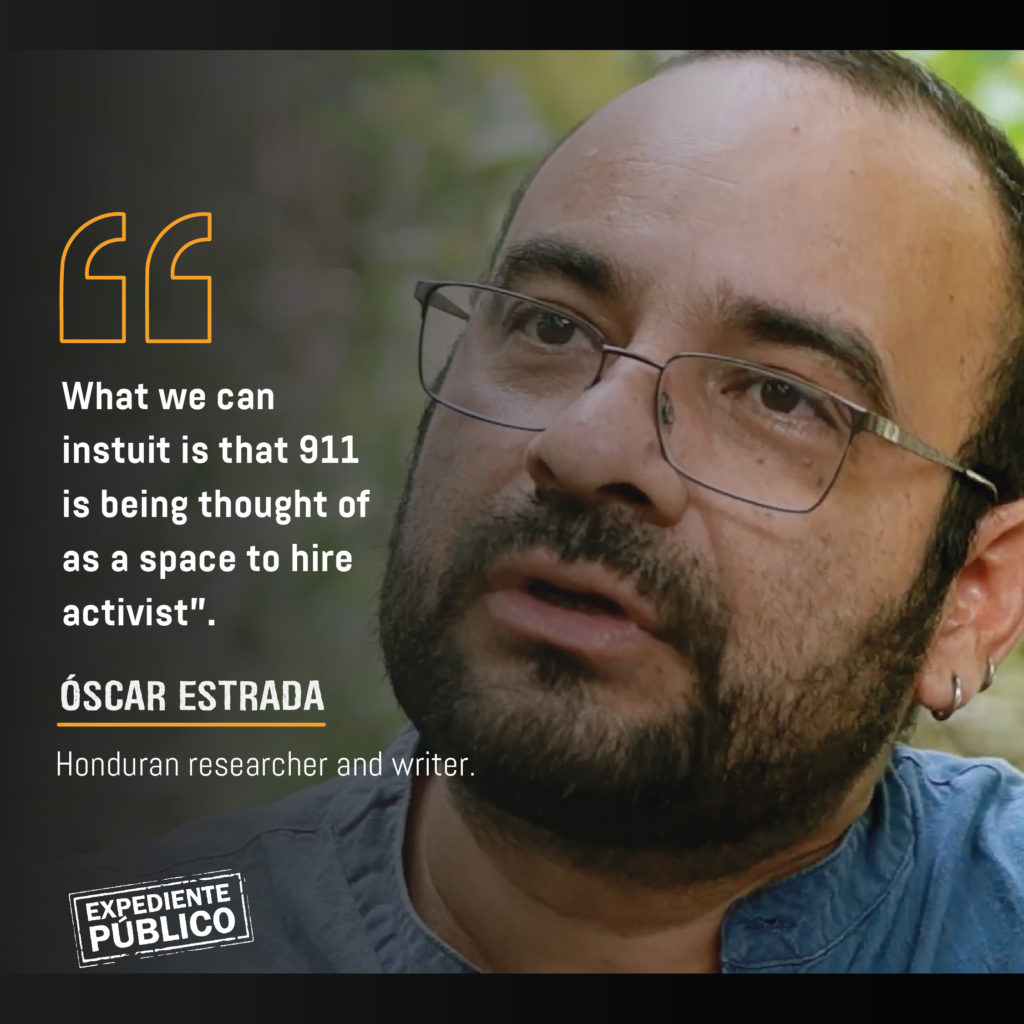
911 system responds
Reyes responded that “the decision to remove the employees who were in the system for seven years is precisely because of all the [administrative] anomalies” or because of “the fact that the system was managed by drug trafficking, by crime, by people who work illicitly.”
“We’re not saying the staff were criminals or anything like that, nothing to do with it, but yes, the senior ranks were like that,” he added.
In September 2023, Cerpas denounced a 911 embezzlement greater than that of the Honduran Social Security Institute (IHSS) and stated that 100 percent of corrupt staff had been purged and that the five percent who passed confidence tests were rehired.
A former 911 employee, who asked not to be named because a lawsuit against the state for wrongful dismissal is in process, told Expediente Público that the reason for appointing an Intervention Commission was because “they needed to look for strategies to fire the staff (…) That was the only function of the Commission,” that is, “to fill an emergency system that protects people’s lives with political activists.”
Regarding Cerpas’ allegations that 911 was co-opted by drug traffickers, Estrada considered that “we haven’t really seen any evidence that indicates that what he’s rhetorically accusing is true, and we haven’t seen what the plan is to prevent that from happening again.”
Also: “Chinese Big Brother” to Control Communications in Honduras
What role does “Mel” Zelaya play?
On August 12, 2023, former President Manuel Zelaya, presidential advisor and Castro’s husband, led the “Refoundation of the National Emergency System” in the Morazán Hall of the Presidential House accompanied by Cerpas.
“You are proposed for a hiring process,” Zelaya told those present, who listened to his monologue for two hours until he finally announced that: “We are going to talk a little about 911 and, since 911 is a national security organization, get the cameras out,” which ended the live broadcast by the (official) Channel 8.
The event was similar to others that the former president has held since April 2022 together with directors or ministers of public entities who arrive at the Executive headquarters to sign work contracts with the bases of Libre, within the framework of the so-called Martyrs of the Resistance Program, with which until August 2022, in other words, in six months of government, 1,324 positions had been given in the public sector in Tegucigalpa alone.
For the presidential adviser, whose party is in a premature campaign ahead of the 2025 elections – “the territories” – as he has classified his support groups, are the fundamental basis of his political project, hence meeting one of the main demands –employment – is a key strategy to sustain his support.
And “not only in 911, almost all the institutions related to 911 and public institutions are under the criteria of Manuel Zelaya and that is dangerous because he was not the person that the people elected to take the reins of the country,” said an anonymous source.
“This person’s biases against everything he has not thought the same as he did in the past are extremely dangerous, they are harmful to the administration of a state,” they indicated.
“I’m not surprised that it’s he (Zelaya) who is taking control, he and the people close to him who have a high level of distrust, imagining coups d’état, imagining conspiracies everywhere” and the issue of security cameras is a resource that they would not leave in the hands of a third party, Estrada noted.
That is precisely why Miroslava Cerpas, after what happened in the Civil Service, “now appears to be taking control of the 911 Intervention Commission without making it clear to us exactly what they are intervening in,” he added.
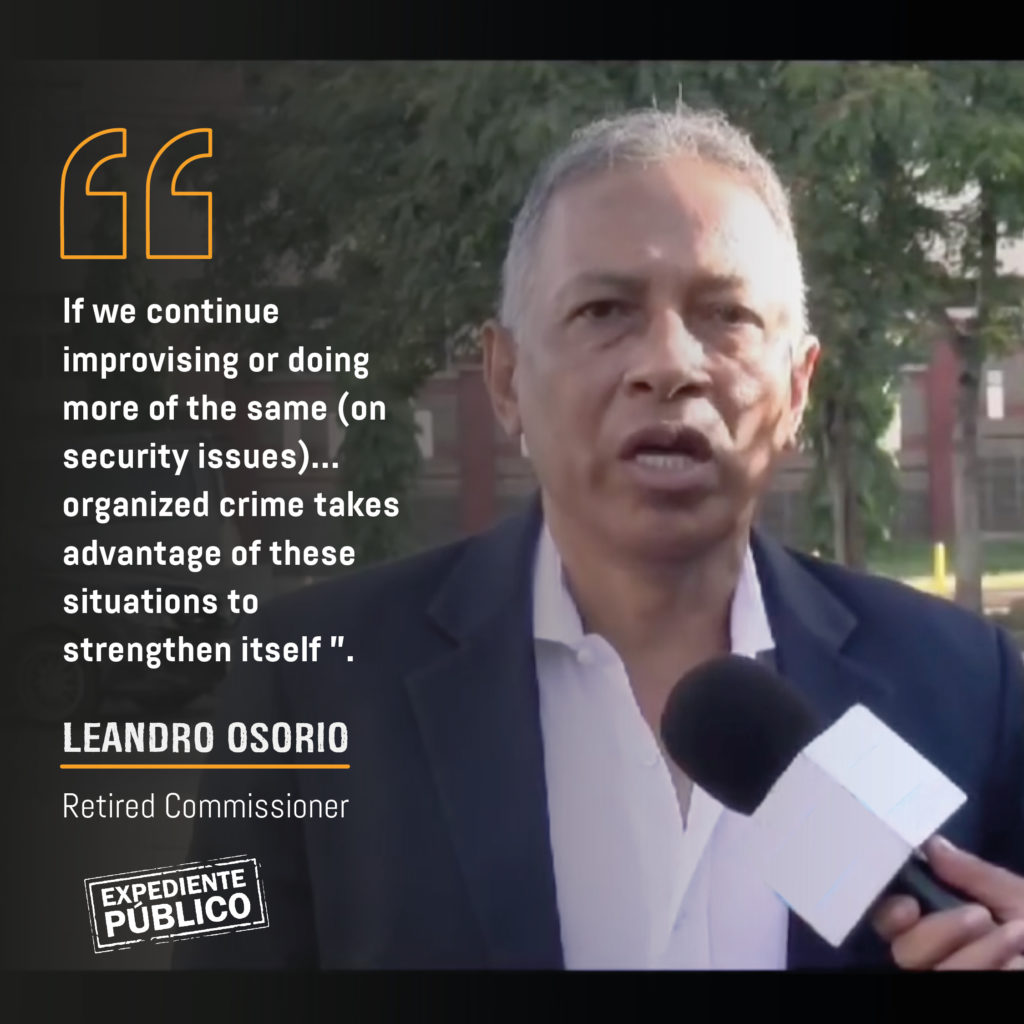
Without confidence tests?
Although Zelaya has also said that confidence tests would be conducted on 911 employees, they “only arrived to work with a signed resume,” said Ochoa, who was fired in July 2023.
“They didn’t train anyone, it’s a lie, they haven’t given them any confidence test,” he said.
On the other hand, before the new government came in, “every six months we were sent to the offices of the DPI (Police Investigation Directorate) to do confidence tests.”
DPI Director Eduardo Turcios was asked how many 911 employees have been subjected to confidence tests in the last year, but he did not respond to messages sent to him via Whatsapp.
For Estrada, “within this disorder, within this habit that the government apparently has of hiring people from the party” regardless of capacity and training, but to maintain certain loyalties, “there is a danger that the least qualified people are being placed to be able to face the pressure that comes from the cartels” that seek to penetrate security institutions.
“What we can intuit is that 911 is being thought of as a space to hire activists and I think that will end up damaging that structure” at an operational and credibility level, Estrada warned.
“The moment we realize that the structure is being used to persecute opponents, to monitor people who are uncomfortable for the government, then it would be a great discredit for the country, it would be a very hard blow to the government’s security policy and nothing that is happening right now indicates that there is no danger that this cannot happen,” he pointed out.

